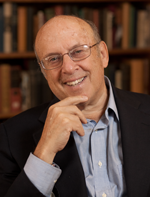
Jeffrey Carduner, Aesthetic Realism consultant, writes:
Our senses—we’re born with them and use them every day, to taste, touch, smell, see, hear. But do our senses have an urgent ethical meaning that we need to know? What is that meaning? And is there a hurtful way of seeing we can have that opposes the very purpose of our senses? Read “What Our Senses Are About,” this beautiful, needed new issue of The Right of Aesthetic Realism to Be Known.
The commentary by Ellen Reiss begins:
Dear Unknown Friends:
With this issue we begin to serialize a magnificent lecture Eli Siegel gave in 1964: Aesthetic Realism Looks at Sensation. It is about a tremendous aspect of the human body—and also about the self that is ours, in all our hopes, worries, confusions, longings, pleasures, ponderings.
At the basis of what Mr. Siegel describes is a central principle of Aesthetic Realism: “The world, art, and self explain each other: each is the aesthetic oneness of opposites.” As he speaks about the senses, he is showing that the biological organization which makes us able to feel is a oneness of opposites—the very opposites that are one in every work of art. In this talk Mr. Siegel doesn’t point to how the opposites he looks at are in art (he was speaking, after all, to people who were already studying Aesthetic Realism). So I’ll say just a little on the subject here.
In the first part of the talk we learn, for instance, that our organs of sensation are a union of part and whole. Well, part and whole working as one are fundamental in every instance of true art. In a good novel, every chapter, every description, every instance of dialogue contributes to the wholeness of that novel. No aspect of the novel, however surprising, is off on its own; a gesture of the protagonist or even a seemingly digressive comment by the author is a means (though we may not be conscious of this) to the novel’s unity and its power.
Mr. Siegel speaks of the workings of our sense organs as having foreground and background. Those opposites, of course, are things a painting has; in a good painting they assist each other, enhance each other.
And as you’ll see, there is that central pair of opposites, in and out. The having of something outside oneself become authentically of oneself, within oneself, is a prerequisite for art to be. For instance, a composer, painter, poet, dancer welcome into themselves things of the world—whether sounds, shapes, colors, words, relations of objects, happenings, meanings—and from that just welcoming within a person, new seeing and expression can come forth….Read more